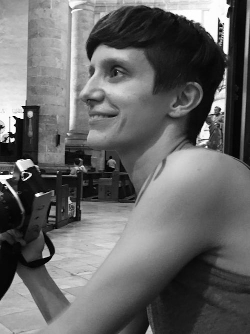
Associate Professor, Department of History, University of Florida
Guerrilla Medicine and Disability in Cold War Central America, 1954-1996
Disability was a battleground in Central America’s Cold War, which began with the U.S.-backed overthrow of Guatemala’s democratically elected president Jacobo Arbenz in 1954. For nearly four decades, Guatemalans (1960-1996), Nicaraguans (1978-1990), and Salvadorans (1979-1992) fought for hearts and minds. But more than Cold War metaphors, these were vital organs whose debility before mortars, torture, and ideologies prompted a medical Cold War. A range of actors, including combatants, medics, social workers, nurses, internationalists, members of solidarity organizations, and politicians understood the importance of disability in revolution. How does a focus on disability change our understanding of Latin America’s Cold War? Guerrilla Medicine and Disability in Cold War Central America answers this question with the region’s first disability history. It reveals contradictions in projects of technocratic modernism, revolutionary uplift, and democratic restoration and amplifies disabled people’s responses to these projects.